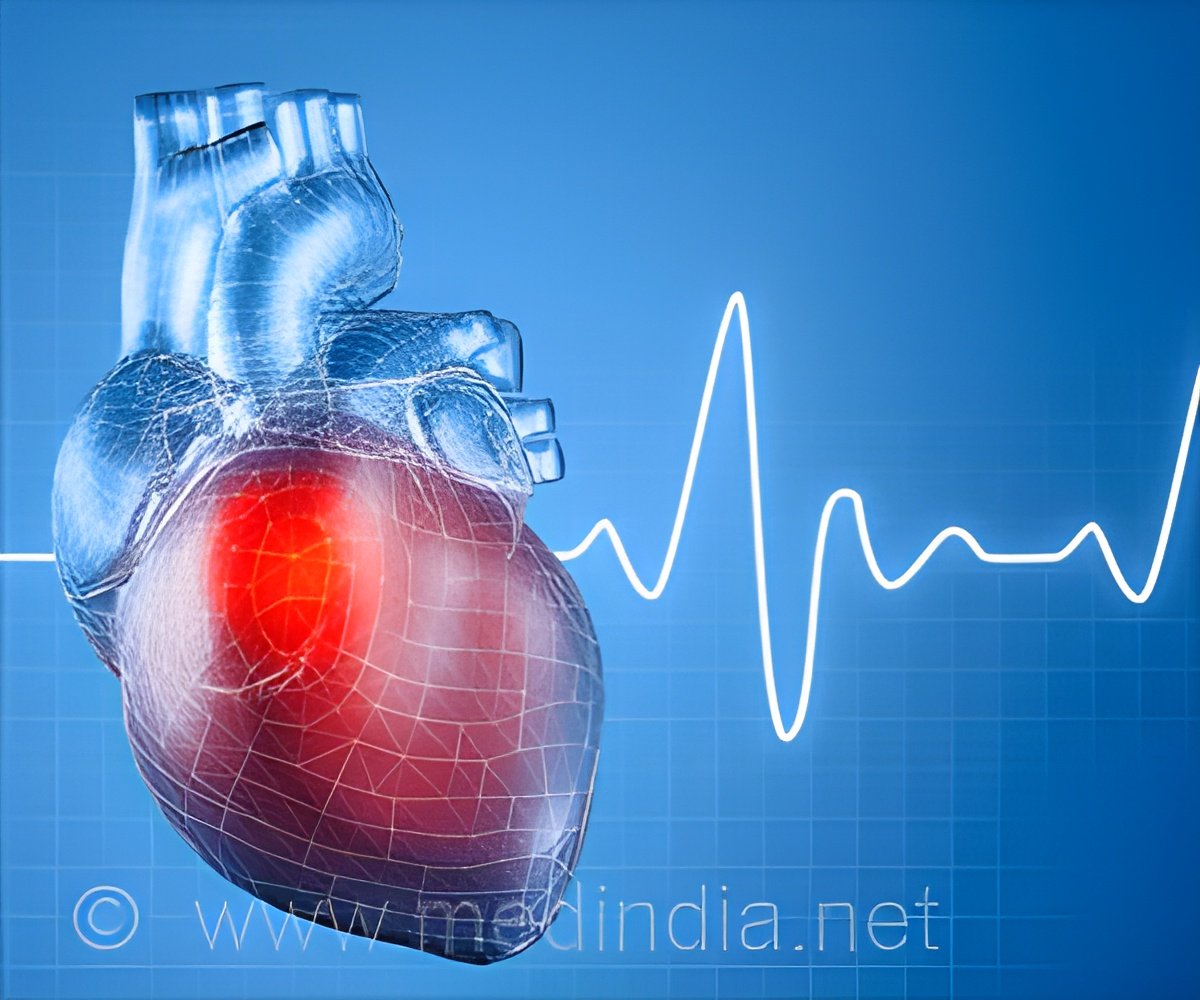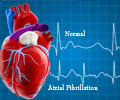Women with breast cancer are at a higher risk of developing atrial fibrillation (AF) within three years following their cancer diagnosis compared with other women of the same age, reveals a new study.

‘Do women with breast cancer have a higher risk of atrial fibrillation (AF)? A new study suggests that women with breast cancer are more prone to atrial fibrillation within three years following their cancer diagnosis.’
Read More..




According to the World Cancer Research Fund, breast cancer is the most common cancer in women worldwide and the second most common cancer overall. There were over two million new cases in 2018. Investigators hypothesized that patients with breast cancer might have a lower threshold for developing AF as breast cancer induces inflammation, a known risk factor for AF.Read More..
"Modern treatment regimens ensure that approximately 80 percent of breast cancer patients become long-term survivors," explained lead investigator Maria D'Souza, MD, of the Herlev and Gentofte Hospital, Cardiology Department, Hellerup, Denmark.
"Healthy survivorship can be threatened, however, by long-term complications resulting from both cancer and related treatments. Notably, increased frequencies of cardiovascular disease, especially heart failure and ischemic heart disease, have been observed in survivors. We hypothesized that women with breast cancer could also be more prone to developing AF because breast cancer induces inflammation."
Using nationwide registries in Denmark, investigators analyzed the long-term incidence of AF in patients with breast cancer compared with the general population. They identified patients diagnosed with breast cancer between 1998 and 2015 and then matched 74,155 female breast cancer patients according to age and sex with 222,465 individuals from the general population (ratio 1:3). Long-term incidence of AF was estimated by cumulative incidence curves and multivariable Cox regression models.
The investigators found that female patients with breast cancer had an increased risk of AF and that the risk was dependent on age and time since diagnosis. Patients less than sixty years old had a more than doubled risk in the first six months after diagnosis and an eighty percent higher risk from six months to three years after their diagnosis. Patients over sixty years old had a similar risk to the general population during the first six months but had a fourteen percent increased risk from six months to three years after diagnosis.
Advertisement
In an accompanying editorial, Ankur Karnik, MD, of the Evans Department of Medicine, Cardiovascular Medicine Section, Boston University School of Medicine, Boston, MA, USA, and colleagues commented that this study provides valuable insights from a large nationwide cohort with results generalizable to women of European ancestry. However, they caution that there are several factors to be considered when interpreting the results.
Advertisement
The study does, however, suggest several substantive research questions. Can the risk of AF in patients with breast cancer be explained by shared risk factors? Is it a multiple-hit phenomenon in which a pro-inflammatory state and breast cancer treatments add insult to injury? Are there certain chemotherapeutic regimens or cumulative radiation doses that raise AF risk? Are there subsets of women with breast cancer at sufficient risk for AF who may merit more intensive monitoring?
"While we do not consider broad-based monitoring for AF in women with breast cancer is warranted at this time, the work of D'Souza et al. is a contribution to the burgeoning field of cardio-oncology and provides support for further research into the potentially bidirectional relationship between cancer and AF," noted Dr. Karnik.
Source-Eurekalert















